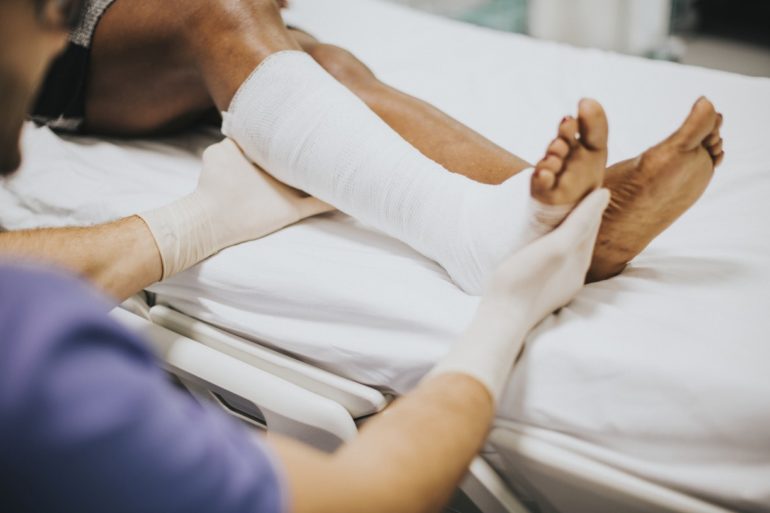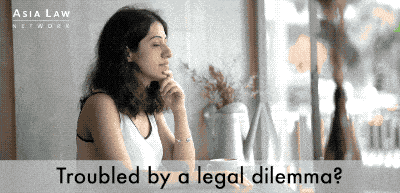- Would the employer be liable for the employee’s injuries if the employee is prohibited from being employed in Singapore?
If an employee is prohibited from being employed in Singapore but sustains injuries, then the employer would still be liable for the employee’s injuries since Singapore’s public policy is to protect workers at the workplace. This also prevents employers from employing foreign workers illegally just because they think that they would be absolved from any liability to compensate such workers who suffer injuries through the fault of the employer in the course of that employment.
- What can I do legally if my child is severely hurt in school?
While schools are entrusted by society and have in law a general duty to take reasonable steps to safeguard the well-being of their charges, the courts tend to tread carefully in this area, so it may be difficult to sue a school by relying on the tort of negligence. However, if a school has assumed a duty of care in a specific situation and if your child was severely hurt during the performance of that duty in school hours and on school premises, then the school may possibly owe your child a duty of care which was breached by its negligence and you may be able to claim some compensation.
If your child was hurt due to bullying, then s.4 of the Protection from Harassment Act which sets out a provision on harassment and causing alarm or distress may prove to be the basis upon which you can take legal action against the school.
- How late is too late to start a personal injury claim?
For a personal injury claim, the time limit prescribed by law (under s.24A (2) of the Limitation Act) to commence an action is 3 years from the date on which the accident happened/injury occurred, or 3 years from the earliest date on which the claimant has the knowledge required for starting a personal injury claim in respect of the relevant injury, if that period ends later than the 3 years from the actual date of the accident/injury occurring.
- Can I sue if my feelings are hurt by discrimination?
In the workplace, you should generally bring discrimination-related matters to the attention of the HR or management via your organisation’s grievance handling procedure. However, if the matter is more serious, you can sue under the Protection from Harassment Act (POHA), which makes harassment both within and outside the workplace an offence. POHA protects people from harassment and related anti-social behaviour such as stalking through criminal sanctions, and also provides a range of self-help measures and civil remedies for victims of harassment.
- What can I do if I am injured by a product? (mobile batteries exploding etc.)
You could make a claim under the tort of negligence if you can show that the seller of the product owes you a duty of care to sell products that are safe for use, that the seller breached this duty of care and that the breach caused you to suffer personal injury. Where there is a duty for the seller to exercise care, they should have taken reasonable care to avoid acts/omissions that would be foreseen (reasonably) to cause injury or damage to persons or property. Even if the seller is a distributor or wholesaler, the courts will generally hold that they owe a duty of care to the ultimate consumer to take reasonable care in ensuring the safety of their products.
- What if I am injured due to a building collapse/structure instability? (escalator broke/moved backwards quickly resulting in injury?)
You can make a claim under the tort of negligence if you can show that the builder or company or person in charge of the building or structure owed you a duty of care which was breached, causing you to suffer personal injury. The courts may consider factors such as whether the danger which was caused could have been averted, the degree of severity of harm and whether the danger posed was reasonably foreseeable.
If you are injured in the course of your employment, then your employer may be legally liable for your injury under the Workplace Safety and Health Act, especially since the courts view employers as duty bound to their employees to take reasonable and practicable measures to ensure their safety at work.
- Would I be able to get compensation for a dog bite?
Under s.10 of the Miscellaneous Offences (Public Order and Nuisance) Act, you may be able to get compensation of up to $2,000 if someone’s dog bites you. The court will assess the exact amount of compensation to be paid. Do note that if the dog bit you because of any wrongful act that you committed e.g. abusing or torturing the dog, then it is possible that you will not be able to get any compensation.
- Employees’ compensation claims for getting injured when working outside of Singapore
If an employee who is employed by a Singapore employer during his course of employment, suffered a work-related injury during an overseas assignment, then his injury may be compensable under WICA. Similarly, if the employee is a seaman who suffered a work-related injury while on board a Singapore-registered vessel, regardless of the location of the vessel, his injury may be compensable under WICA.
- Medical Negligence – when should I consider legal action?
You should consider legal action when you have a cause of action such as a complaint about professional misconduct by a medical practitioner, a complaint relating to an issue of medical ethics and standards or a complaint relating to the physical or mental fitness of the medical practitioner to practise. In cases of malpractice, patients generally first lodge a complaint with the Singapore Medical Council (“SMC”), which is a statutory board under the Ministry of Health responsible for regulating the conduct of doctors in Singapore. While this is cheaper than suing a doctor, the disadvantage is that you will not be able to obtain compensation through this process, or a refund or reduction in bills incurred.
Therefore, you could consider bringing a civil action against the doctor involved. The legal requirements to be established before negligence can be found are that there must be a duty of care (likely to be found because of the doctor-patient relationship), a breach of the standard of care reasonably expected of a competent doctor and that the loss suffered by you can be attributed to the negligence of the doctor.
- Accidents without Cause (unable to establish who is at fault) – should I consider legal action?
If negligence on the part of the wrong doer cannot be proven, one cannot sue in tort. However, if it is work related injury, you can still claim compensation because there is no need to show fault (ie tortfeasor has been negligent). For more details you can look to Ministry of Manpower’s website here.
Have a question about personal injury?
If you have any questions, you can request a quote with Raphael Louis or get a Quick Consult with other lawyers from a transparent, flat fee from S$49. You can expect a call back within 1-2 days on the phone to get legal advice and have your questions answered.
This article is written by Raphael Louis from Ray Louis Law Corporation and edited by Elizabeth Tan of Asia Law Network.
This article does not constitute legal advice or a legal opinion on any matter discussed and, accordingly, it should not be relied upon. It should not be regarded as a comprehensive statement of the law and practice in this area. If you require any advice or information, please speak to a practicing lawyer in your jurisdiction. No individual who is a member, partner, shareholder or consultant of, in or to any constituent part of Interstellar Group Pte. Ltd. accepts or assumes responsibility, or has any liability, to any person in respect of this article.


